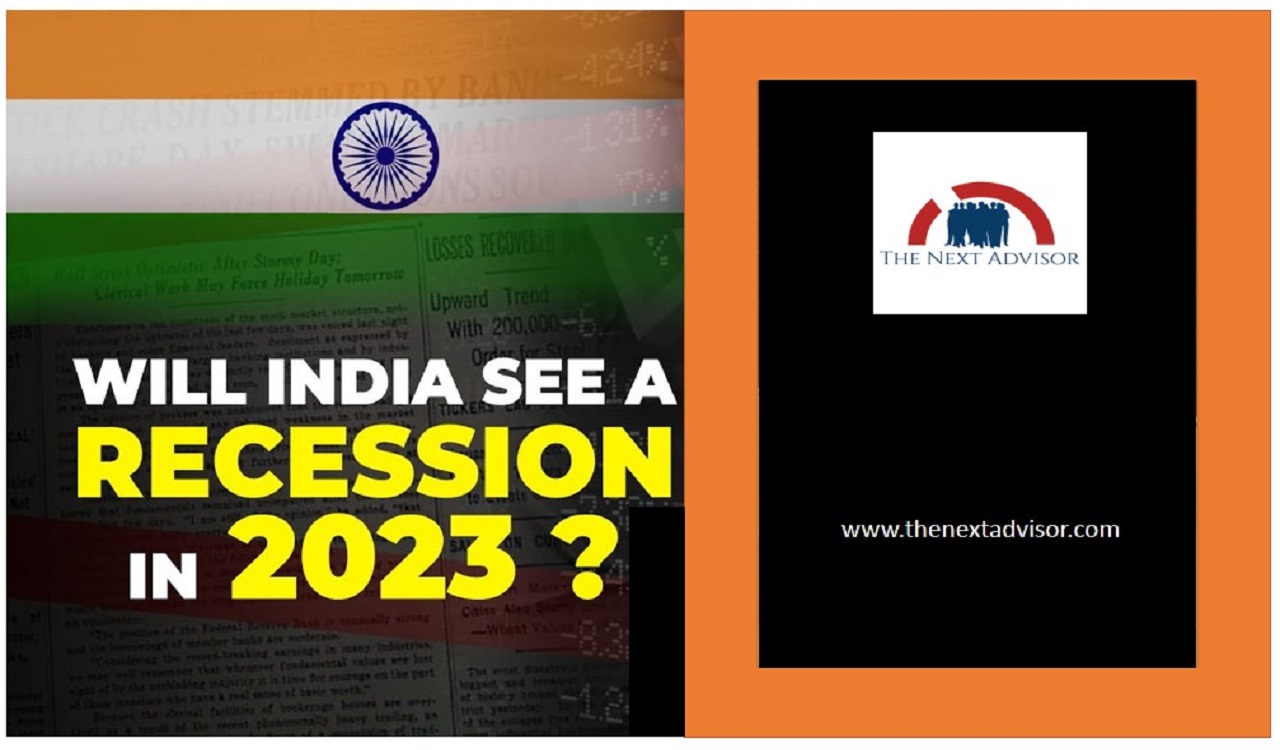Will India See A Recession In 2023
Let’s see friends Will India See A Recession In 2023?
We will have to first understand what a recession is and what is its technical definition. You all probably know that Whenever the GDP of the country, which generally means the value of all the goods and services being produced in the country. when decreases, we usually call that period a recession. The problem with this is that even if a single day goes like that, then the opposition starts calling it a recession. While on the other hand, the ruling party will deny the same even if it lasts for years.
Hence, it is generally accepted, though it is not completely true. That is the GDP or production of a country continues to fall for two consecutive quarters. Then the economy is considered to be in a recession. And before we start talking about the recessions in India, if we look at the American data. And on average each of them lasted 11 months. But when a recession continues for a few years instead of a few months. Then we sometimes call that period a “Depression’. For instance, the USA had a great depression in 1929 when the economy kept on shrinking for 4 years. When the dot-com bubble burst in 2001, the GDP shrank for eight months, production dropped by only 1% and the unemployment rate peaked at around 6%.
Now, if we talk about the US housing crisis in 2088. It lasted for 18 months. but its negative effects on the US economy lasted for a long time. In 2007, the unemployment rate, which was under 5% peaked at 10% and the level of unemployment got back to 5% only till 2016 and that is why we usually call it The Great Recession of 2008. And lastly, if we analyze the recession because of COVID in 2020. Then we will realize that it was the shortest-ever recession in the USA, which lasted only for 2 months and even though this recession was less than two quarters. So what is the reason behind this confidence?
So, you will be surprised to know that though the USA had 11 recessions since 1948, India had only 5, and even among those 4 were before 1980, Meaning that after 1981, in the last 42 years, India just had one recession, the 2020 recession which occurred because of the lockdown. The first was the temple drought India faced that year. Agriculture and related industries had a 35 percent share of the GDP. Which is now 18-19 percent. So, let’s assume, it today agriculture production falls by 50 percent for some reason.
Secondly, the dependence of agriculture on rainwater at that time, 70 percent of agricultural land was dependent on rainwater, which is now less than 51 percent. That’s why at that time poor rainfall had a much bigger impact on agricultural production, Oil prices increased from 2.75 per barrel in 1973 to more than 355 per barrel in 1980. And the effect of a 12x price hike n such an important commodity. The government’s and common citizen’s budget is quite easy to deduce. So that, we can understand how difficult it has been for the Indian economy to officially get into a recession. Hence this statement from every finance minister that ” There won’t be a recession in India” is politically amazing because one, it sends a very positive message to the masses, and two, no one can say that Finance Minister has made a wrong statement.
“Growth may have come down, but it is not a recession yet, and it won’t be a recession ever. If it is due to a surge in oil prices or due to conflict between countries, external factors will be blamed. Now you may ask, “What are the underlying of the Indian economy? Decades ago, because of very high tax rates, business owners. Till mid-1980, if entrepreneurs needed any machinery or raw materials for their factories from outside the country that was also nearly impossible.
The rights to import many of the goods were only with the government. The Indian government also decided to privatize, government companies. So, that the government could sell these companies to private players. Generate revenue. With liberalization, privatization, globalization, and tax reforms. Now we will discuss how all these things saved India from recessions in the last 42 years. Not only this but after the reforms of the 1980s and 1990s, the automobile industry.
Not, only has the growth of the telecom industry itself been phenomenal. but it has also helped many other industries grow or develop. the banking revolution, the social revolution, the ed-tech revolution I would say all.



























